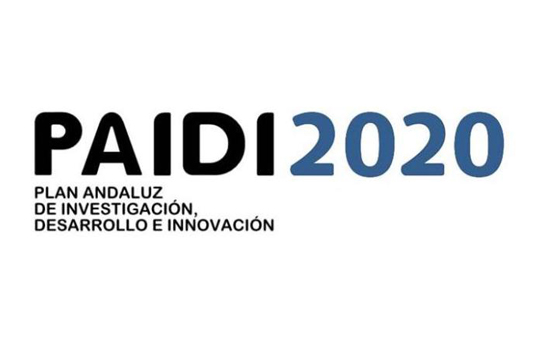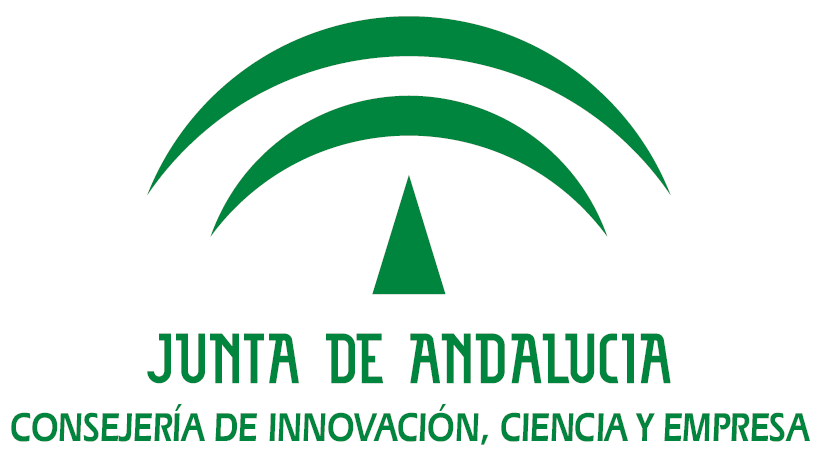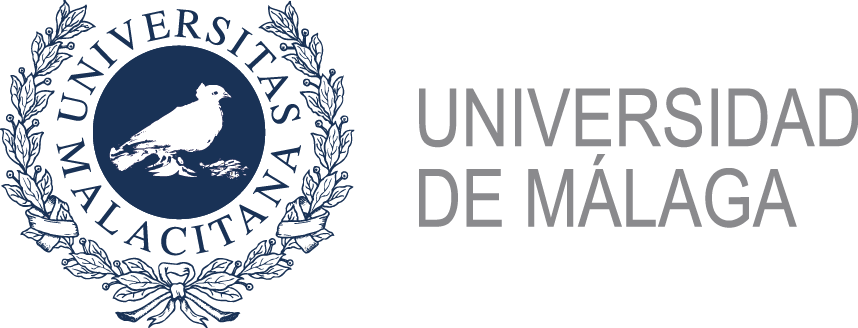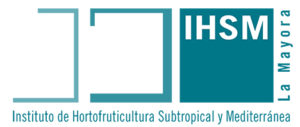This project aims to delve into essential aspects of the biological control of avocado white root rot, caused by the phytopathogenic soil fungus Rosellinia necatrix, and pays special attention to the multitrophic interactions that are established between rhizobacteria, the root of the plant and the pathogenic fungus. A genomic and microbiological approach to the objectives will be carried out, using a synthetic bacterial community as an interaction model, composed of three rhizobacteria of the genus Pseudomonas (PCL1601, PCL1606 and AVO110), previously isolated from the avocado rhizosphere, and that individually have shown to have biological control characteristics against R. necatrix in this crop. Previous results of our group have shown the existing compatibility between these three rhizobacteria when they form a microbial consortium (or synthetic microbial community), which has the ability to survive stably in the avocado rhizosphere, so they could constitute a community synthetic model to address new studies. Therefore, the biological properties of this model synthetic microbial community, potentially involved in the multitrophic interaction in the rhizosphere during biological control, will be analyzed. These tests include the study of the effect on plants of the inoculation of the microbial consortium in aspects such as the colonization of the roots, the production of different enzymatic activities or its effect against biotic stress (such as attack by pathogenic soil fungi) and abiotic (like drought or salinity). In addition, the genetic and molecular bases of the interactions that take place, both between the members of this microbial community, with the plant root and with the phytopathogenic fungus during biological control will be studied in depth. For this, transcriptomic techniques (such as RNASeq) will be used that will allow the extrapolation of genetic routes and potential activities involved in said multitrophic interaction. Simultaneously, progress will be made in the study of the cellular and molecular bases of those beneficial characteristics for the plant encoded by each strain that makes up the microbial consortium. Thus, the colonizing properties of the rhizosphere of plants and the hyphae of R. necatrix of AVO110 or the phenomenon of “energy-taxis” in PCL1601 and PCL1606, key processes during the multitrophic interaction of microbial communities with the plant and with the phytopathogenic fungus.
Avocado research
GRANTS
Study of a synthetic microbial community as a model of multitrophic interaction during biological control in the rhizosphere against phytopathogenic fungi
CÓDIGO: UMA18-FEDERJA-046
DURACIÓN:15/11/2019 – 14/11/2022
PRESUPUESTO: 35572,49 €
INVESTIGADOR/ES PRINCIPAL/ES:
FRANCISCO MANUEL CAZORLA LÓPEZ
CAYO RAMOS RODRÍGUEZ
PARTICIPANTES:
ADRIÁN PINTADO CALVILLO
SANDRA TIENDA SERRANO
JOSÉ ANTONIO GUTIÉRREZ BARRANQUERO
ZAIRA MARÍA HEREDIA PONCE
EVA ARREBOLA DÍEZ
SANDRA DE WEERT (KOPPERT B.V. THE NETHERLANDS)
ENTIDAD FINANCIADORA:

Adaptation and transfer of a protocol for the prevention of postharvest diseases in mango and avocado fruits
Andalusia has been betting on the cultivation of subtropics for more than 50 years and has become an international benchmark in the management of these fruits. The large investment made by farmers both in production and in opening new markets can be seriously damaged by post-harvest diseases, which affect the fruits during storage and transport. The transfer activity proposed in this report focuses the study on postharvest fungal diseases of mango and avocado and their control through biological and environmentally sustainable strategies, and for this we have the important participation of farmers and the largest tropical cooperative in Spain. TROPS. This cooperative has more than 2,300 associated farmers and more than 36 years of experience in the sector. On the other hand, our research group at the University of Malaga has described the high control capacity of fungal and bacterial diseases of two strains of Bacillus amyloliquefaciens. These two strains have been the object of interest to the multinational company Koppert Biological Systems, specialists in the formulation of biological products for disease control. Koppert B.S. has formulated a pre-commercial product that includes these bacterial strains that could be applicable in the biological control of postharvest diseases of mango and avocado. The transfer activity that concerns us has as main objectives:
1.- To know the causes of post-harvest diseases that affect mangoes and avocados, as well as to evaluate the control capacity of the Bacillus strains formulated.
2.- Adaptation and transfer of an action protocol against fungal infections during pre and post-harvest, through the application of environmentally sustainable products.
CÓDIGO:AT17_5544_UMA
DURACIÓN:1/4/2020 – 30/6/2021
PRESUPUESTO: 44000 €
INVESTIGADOR/ES PRINCIPAL/ES:
FRANCISCO MANUEL CAZORLA LÓPEZ
PARTICIPANTES:
ANTONIO DE VICENTE MORENO
ALEJANDRO PÉREZ GARCÍA
DIEGO FRANCISCO ROMERO HINOJOSA
JUAN ANTONIO TORÉS MONTOSA
EVA ARREBOLA DÍEZ
SANDRA DE WEERT
DAVID SARMIENTO
ENTIDAD FINANCIADORA:

Efficient biological control strategies against Rosellinia necatrix: from functional genomics to the field
The goal of this coordinated project is to move forward into the different strategies developed for effective biological control of avocado white root rot, caused by the fungus Rosellinia necatrix. To this end, the knowledge acquired so far will be applied on the different partners that interact within this system, with the aim of approximating the effective biocontrol of the disease. The hipovirulent isolates of R. necatrix and related fungi may be carriers of dsRNA segments and be capable of transmitting hypovirulence to pathogenic isolates. A low presence of nonpathogenic isolates of R. necatrix has been detected in field surveys, however, some new fungi identified as Entoleuca sp, a genus close to Rosellinia and which infest escape avocado tree soils, have appeared. Some strains of this genus are not pathogenic in avocado plants and provide biocontrol action against avocado white root rot. Therefore, this fungal genus is going to be subject of study to discern the role of the mycovirus of Entoleuca sp. in the biological control of this disease, while developing applications in the field of commercial formulations of the antagonist fungus Trichoderma, which provides strains with potential biocontrol activity of the disease. On the other hand, and using as a model the biocontrol bacterium Pseudomonas chlororaphis PCL1606, we will get insight into the interactions that take place during biocontrol. Thus, different techniques ranging from functional genomics to cell biology will be used to study “quorum sensing” regulation and its role in the biocontrol of Rosellinia necatrix by PCL1606. In addition, the first approaches to the use of Pseudomonas chlororaphis PCL1606 as commercial biocontrol agent will be carried out. To do this, this strain will be formulated as a commercial-like product, and applied to microcosmos tests on avocado plants. Aspects such as protection against R. necatrix, the effect of its application on the soil microbiota or the mobility of the bacteria into the experimental system will be studied. Depending on the results obtained, the first application trials of P. chlororaphis on commercial orchards could be scheduled. Finally, the regeneration of avocado plants via somatic embryogenesis from adult explants (stem apices and seed coat) will be attempted, in order to be able to carry out the manipulation of material with good agronomical traits as well as to evaluate if there is a recovery of the morphogenetic ability, which would facilitate the in vitro multiplication of shoots of adult origin. At the same time, the obtainment of tetraploid plants will be carried out from embryogenic cultures selected in the current project, as well as as from cultures resistant to the filtrate of R. necatrix, in order to evaluate if plants with higher level of ploidy would show smaller size and higher plasticity when facing stress. In addition, the optimization of the cold storage protocol will be continued to allow a reliable presevation of embryogenic cultures. Finally, the behavior of transformed material with the AtNPR1 gene against R. necatrix, in the presence of antagonistic microorganisms previously selected in this project, will be evaluated.
CÓDIGO: AGL2017-83368-C2-1-R
DURACIÓN:01/01/2018 – 30/06/2021
PRESUPUESTO: 169400 €
INVESTIGADOR/ES PRINCIPAL/ES:
FRANCISCO MANUEL CAZORLA LÓPEZ
FERNANDO PLIEGO ALFARO
PARTICIPANTES:
CARLOS LÓPEZ ENCINA
ANTONIO DE VICENTE MORENO
JOSÉ JORGE GONZÁLEZ FERNÁNDEZ
JOSÉ ANTONIO GUTIÉRREZ BARRANQUERO
CLARA PLIEGO
NURIA BONILLA
SANDRA DE WEERT
CLAUDIA E. CALDERÓN
JOS RAAIJMAKERS
LEO EBERL
VICTOR J. CARRIÓN
ELISA CARMONA
ENTIDAD FINANCIADORA:

Learning from multitrophic interactions in the avocado rhizosphere to improve biocontrol of Rosellinia necatrix.
This coordinated project is aimed to get insight into various essential aspects for the biological control of avocado white root rot, caused by the fungus Rosellinia necatrix. The analysis of the individual components of this system will be studied under different approaches. First, it is intended to adress the pathogenicity of R. necatrix regarding the presence or absence of dsRNA and its relationship with the phenomenon of hypovirulence. This allows studies of dsRNA transfection between hypovirulent and pathogenic strains of this fungus and the implementation of pathogen virocontrol. Studies of novel antagonistic soil fungi from avocado escape trees, which do not show pathogenicity and seem to provide potential biocontrol of white root rot, will also be carried out. An in vitro study of the action of Trichoderma or rhizobacteria with the contact fungicide Fluazinam over the pathogen will be addressed and also field applications of this fungicide in infected established avocado orchards of southern Spain, will be assayed. Secondly, the study on microbiological control agents will be improved. Thus, related to the rhizobacterial strains with biocontrol activity Pseudomonas chlororaphis PCL1606 and Pseudomonas pseudoalcaligenes AVO110, its genome sequence is already available and, using it, we will perform a search of genes potentially involved in several aspects of the multitrophic interactions during the biocontrol process, which will include studies about promoting plant growth (PGPR), chemotaxis, biofilm formation or transcriptional level studies of the interaction between different members of the system. Another approach include the elucidation of the microbiome of an agricultural soil which increases its suppressiveness after being amended with almond shell. A study of the microbiome sequencing techniques based on DNA and RNA techniques, as well as culture-dependent approaches will be carried out. From the potential results obtained, specific microorganisms would be selected and an artificial consortium of compatible microorganisms will be constructed that will constitute a synthetic community. On this artificially assembled community would be studied in detail the processes of interaction and control which may cause the final effect of biological control would be studied in detail. Thirdly, the defence mechanisms of avocado plants and two model species, olive and strawberry, transformed with the AtNPR1 gene, a key factor in SAR response, will be evaluated. These studies will allow us to know whether, or not, there exist any similarites between the mechanisms of defence of the three species against this pathogen. Afterwards, avocado transformation with PaNPR1 will be undertaken. In addition, the selection of embryogenic avocado cells growing in the presence of crude filtrate of R. necatrix will be carried out as an alternative approach to get plants tolerant to this pathogen. Finally, the development of a system for in vitro conservation of embryogenic cells will be started, to store selected material without any loss of morphogenetic capacity.
CÓDIGO: AGL2014-51528-C2-1-R
DURACIÓN:01/01/2015 – 30/06/2018
PRESUPUESTO: 314600 €
INVESTIGADOR/ES PRINCIPAL/ES:
FRANCISCO MANUEL CAZORLA LÓPEZ
FERNANDO PLIEGO ALFARO
PARTICIPANTES:
CARLOS LÓPEZ ENCINA
ANTONIO DE VICENTE MORENO
ENTIDAD FINANCIADORA:

Genomic strategies for biological control of fungal diseases affecting relevant crops in Andalusia (Spain).
Biotechnological application of beneficial microorganisms to avoid development of plant diseases and pests caused by pathogens (biological control) is gaining more ground in Europe and worldwide. Genomic analysis of biocontrol agents provides detailed information about the battery of genes requires by a biocontrol agent to establish interactions with both the plant and the pathogen. The overall objective of this project is to identify bacterial genes involved in the biological control of plant diseases relevant in Andalusia (Spain), powdery mildew of cucurbits and avocado white root rot. We propose the genome sequencing and a comparative bioinformatic analysis of the genomes of four selected bacterial control agents isolated at the IHSM-UMA-CISC: two strains of Bacillus and two Pseudomonas, whose efficacy in the biological control of these diseases has been tested previously. Subsequently, we propose a functional analysis of specific regions identified in each of these genomes.
CÓDIGO: P10-AGR-5797
DURACIÓN:27/01/2011 – 27/01/2016
PRESUPUESTO: 272957 €
INVESTIGADOR/ES PRINCIPAL/ES:
CAYO RAMOS RODRÍGUEZ
PARTICIPANTES:
FRANCISCO M. CAZORLA LÓPEZ
ANTONIO DE VICENTE MORENO
DIEGO FRANCISCO ROMERO HINOJOSA
ALEJANDRO PÉREZ GARCÍA
ENTIDAD FINANCIADORA:

Understanding biological control of Rosellinia necatrix by using genomic strategies to the biotic interactions in the avocado rhizosphere
This project deals with the study of biological control of avocado white root rot caused by the fungus Rosellinia necatrix by analyzing the various components of this system and their multitrophic interactions. For this, different strategies will be carried out, but focusing on genomic approaches. Different aspects are being studied, mainly at molecular level, such as the virulence factors of the pathogen, the mode of action used by bacterial and fungal biocontrol agents (antagonism, colonization, mycoparasitism, …), the usefulness of additional strategies such as the application of organic amendments and its effect on R. necatrix, and the response of the plant by constructing transgenic avocados.
CÓDIGO: AGL2011-30354-C02-01
DURACIÓN:28/01/2012 – 28/01/2014
PRESUPUESTO: 278300 €
INVESTIGADOR/ES PRINCIPAL/ES:
FRANCISCO MANUEL CAZORLA LÓPEZ
PARTICIPANTES:
FERNANDO PLIEGO ALFARO
ANTONIO DE VICENTE MORENO
ENTIDAD FINANCIADORA:



